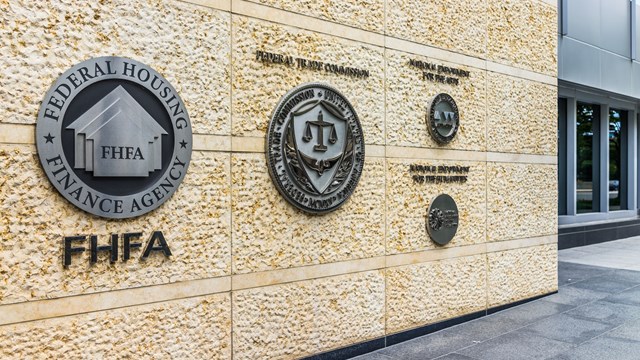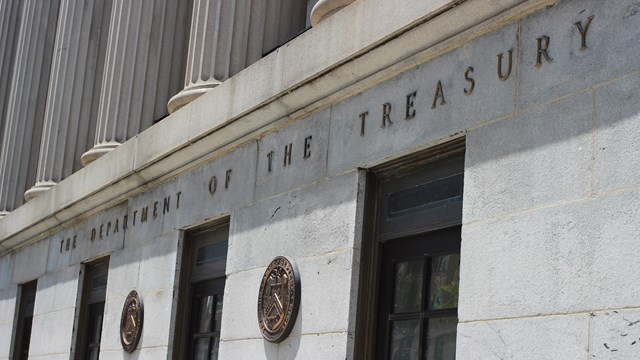Whether large or small, a community association’s list of essential professionals includes its property manager, an accountant, and a lawyer.
While it’s generally understood how to employ the first two—call the accountant when bills are due and at tax time, and the property manager pretty much all the time—rules for engaging with the condo’s legal counsel remain somewhat vague.
For instance, exactly when should you contact your HOA attorney? What is the best way to contract for legal services? And who should be the point person for contacting the attorney?
Who to Hire?
Finding the right attorney is perhaps the most crucial step in steering clear of litigation—or navigating the litigious waters if a lawsuit should occur. Good legal counsel will also help you on a day-to-day basis with any legal questions that might arise.
"Although managers frequently recommend attorneys, it is the board of directors or trustees who have the authority to actually retain the attorney," says Michael Karpoff, a partner at the Hill Wallack LLP law firm in Princeton. "Some boards will rely upon the recommendations of their managers, but I believe most involve themselves in the selection process."
Although some associations don't take bids, others will make public the range of skills and expertise they're looking for so that prospective attorneys may bid. It's generally not recommended that an HOA simply pick the lowest bid, says Karpoff—better to closely study the qualifications of each law firm that presents itself for consideration. He adds that various factors may be taken into account, including experience, size of firm, ability to provide necessary services, staff size, and price.
In fact, says Ronald L. Perl, also of Hill Wallack, "The best relationships are established by referral, because then it's based on actual experience in working with the attorney. Another method of introduction is the attendance by the board member or manager at a seminar conducted by the attorney. In either event, discussions with others who have used the attorney provide the best insight into the attorney's responsiveness, style of work, thoroughness and reasonableness of fees."
"You send in your credentials and your fees, and then you'd actually go in for an interview with the board," adds Bruce Freeman, a partner with the law firm of Woehling & Freeman in Westfield. "The board would then select from among the lawyers who had interviewed, based on some threshold qualifications," including their knowledge and level of expertise with real estate law in particular. "A general practitioner can't be expected to know all the issues that come up in this specific area of law," says Freeman. "You find that the cases where boards did silly things and got rapped on the knuckles by the court are those cases where they're represented by lawyers who don't have the depth of background knowledge. That kind of experience keeps the board out of legal trouble."
When to Call?
While there’s no established criteria for when a board or manager should contact their attorney, most professionals agree that as soon as an HOA's administrators feel there's the possibility of a legal issue, they should alert their counsel. What qualifies as a “legal issue” ranges depending on whom you ask, but the attorneys spoken to for this article include things like the threat of a lawsuit from any quarter, any claim that someone's rights are being violated or property has been lost or damaged, or any breach of duty on the part of the board or management. Most such issues amount to nothing, but that's not for the board to decide on its own, says Joan Mueller-London, an attorney with London & London of Newington, Connecticut. A trained legal professional can determine the best course of action that will yield a good result and protect the association's interests.
“I think too often boards tend not to deal with problems proactively,” says Mueller-London, “and I would say, regretfully, they let a situation get to the point where by the time they contact counsel it becomes a more expensive problem because they weren't more proactive in the first place.”
Perl agrees. "An HOA should have an ongoing relationship with their attorney, and shouldn't be afraid to use it. A board is running an enterprise with the characteristics of both a business and a government. Neither of those entities would operate without regular legal advice. There are too many requirements in today's world, from Fair Housing, to telecommunications, to local laws on speed bumps and towing for managers and board members to be expected to know everything. Preventative lawyering saves lots of time, money and aggravation in the long run."
Pay-As-You-Go or Retainer?
While boards can often save money by calling their attorney early when problems develop, many are held back because of fear of unnecessarily driving up legal bills, which bring to the fore the question of payment.
In general, there are two methods of payment—pay-as-you-go (generally hourly), or retainer (typically a flat monthly fee for most items, with some specific services priced at a reduced hourly rate).
The best method of payment depends on the type and volume of legal issues a community may be facing. If an HOA is small and rarely finds themselves in need of legal help, they may be better off being charged an hourly rate rather than a fixed monthly fee. For larger associations or ones with ongoing legal situations—or a new development that is transitioning from its developer for example, or which is facing construction defect issues—a retainer that includes various regular services may be the smarter option.
Wells, Maine, attorney Joseph Carleton says he infrequently uses retainers, and when he does, they are “very carefully drafted because attorneys don’t want to feel like they’re on the hook answering an unlimited number of questions.” To put a cap on his consultation time, Carleton says his retainer agreements typically exclude litigation matters, which are added on at a pre-determined fixed hourly rate.
Litigation-related matters and court appearances are usually excluded from retainer contracts, but what is covered is usually things such as telephone calls from the board, reviews of condominium forms, documents, and contracts. Retainers also often feature an opt-out clause allowing a board to change the terms of the contract from retainer to hourly with an agreed-upon amount of prior notice.
Who’s Doing the Talking?
Another dilemma for a condominium board is who should contact the attorney regarding a legal problem—the property manager, the board president, or some combination thereof?
For most attorneys, the best answer is the simplest—just one person. “It’s always a good idea to have one designated contact person,” says one attorney. “Many times it’s the board president; sometimes it’s the property manager. I always tell the board president that it’s essential to have only one contact person. If it’s not made clear who the designated contact is, different people on the board can have their own agendas and different interpretations of things. You don't want to have a lot of people with the ability to run up the bill.”
Most other legal professionals agree that they prefer to interact with a single point-person designated by the board, or a specified alternate if that person is not available. When a non-designated board member calls his or her HOA's attorney, that attorney will generally try to balance the caller’s concerns with the instructions from the board that he deal only with the designated person. “If we get a phone call from a board member who is not designated, we'll at least listen to the question and find out if we have the authority to answer it,” says one legal professional. “We try not to cut out anybody in a position of authority; we prefer [to communicate with] the person who’s been designated by the majority to talk to, because in fact all boards act by majority vote.”
What Lawyers Wish Board Members Knew
In addition to knowing when to call the attorney, a board should have some additional guideposts to follow.
Mueller-London says she wishes condo boards would make more of an effort to communicate with owners and keep better records when violations occur. “One instance is if a person is fined because they have a non-conforming screen door or something like that. They are new unit owners in the community, so they may not know the documents well enough to know that you just can’t put a screen door up.”
With better communication, Mueller-London says many such problems can be avoided—or at least the condo’s legal position strengthened. “At the root of the problem is there is not enough clear-cut correspondence from the board to the unit owners saying, ‘If you need to put a new door on, here are the models that are acceptable, and we will order them for you.’ Things like that can get out of hand pretty easily … At the end of the day, there's not enough clear, written correspondence to the unit owners.”
More than one of the attorneys contacted for this piece say they wish boards would not be penny-wise and pound-foolish and contact their attorneys for advice in handling problems before a manageable situation spirals out of control.
For instance, says one attorney, “In a condominium [we represent], there was water damage to a unit several years ago which resulted in mold. Even though the unit owners complained several times, nothing was done—the attorney wasn’t called, the insurance company wasn’t called. Eventually, the unit owner sued for his losses, including health issues.”
Because the board sat on the case for so long, the insurance company has now refused to pay for the condo’s legal defense, resulting in a large unwanted exposure. “Had we been notified of this at the beginning, we probably would’ve recommended quick mold remediation and getting a release [from the unit owner, stating the problem was fixed] which would have put end to the claim,” the attorney says.
Scott Piekarsky, an attorney with Piekarsky & Schettino in Hackensack points out that under New Jersey state law, if a condo association is aware of a dispute—either between residents or between a resident and the association itself—then the association must offer what is called alternative dispute resolution (ADR) before the matter can move on to litigation. This could come in the form of a resident committee, a judiciary committee, a covenants committee, or an outside mediator.
"In New Jersey and in other states, the Community Associations Institute trade organization has an ADR program," says Piekarsky. "Lawyers, managers, and others volunteer for the program so that associations can submit disputes to that. Basically, under Jersey law and the Condo Act, you really must get involved if a housing-related dispute is brought to your attention."Carleton says boards can also save themselves a lot of money if they present their counsel with complete and updated condominium documents when the attorney is hired.
“Maybe as often as 50 percent of the time, my new clients come in with documents the developer had given them 10 years ago, which might not be the same as the documents that were recorded at the registry of deeds,” he says. “The board may not have copy of recorded amendments, or they may have amendments which they think were adopted, but in fact were never [formally] recorded, and therefore not effective,” he says.
Without access to updated documents, Carleton says, “if reference needs to be made to the documents for the answer to legal question, then [the condo’s attorney] may come up with the wrong answer.”
For this reason, Carleton says, “My practice with a new client is to ask them for the documents that they have, then to do a title update to see what they have is right and sufficient. Many times there are amendments to the documents that the present board members don’t know anything about.”
For his part, Perl says, "We wish clients would call us before small problems become a crisis -- or better yet, before issues even become problems. Preventative legal advice is so important, yet some associations under-use lawyers to save money. It usually results in spending more money in the long run. Lawyers can help prevent clients from making mistakes if only they are consulted."
And as many condo boards know all too well, lack of knowledge in legal matters is something that can ultimately cost the association money. That's why it's so vital to have an open, cooperative relationship with your HOA's legal professionals—they're the main line of defense between your association and unwanted exposure and expense.
Jim Douglass is the managing editor of New England Condominium, a Yale Robbins' publication. Additional reporting and writing by David Chiu and Hannah Fons.







Leave a Comment